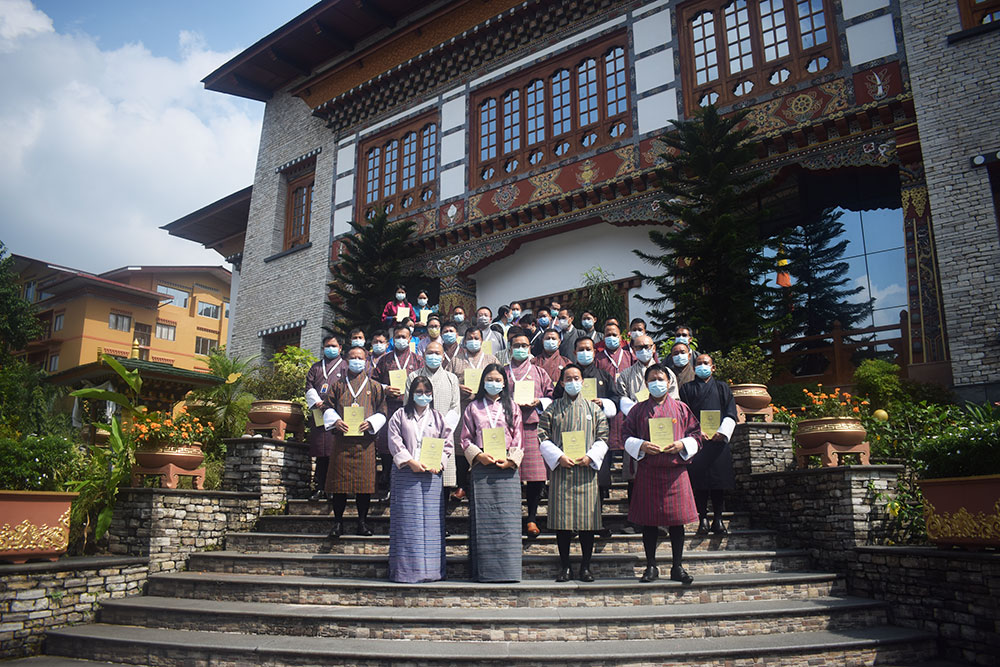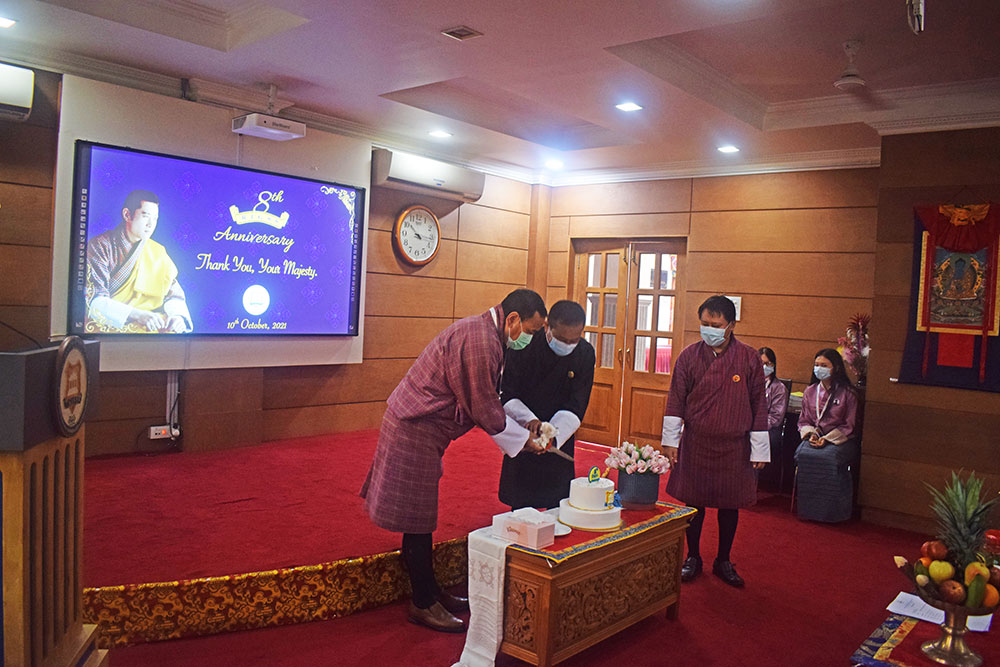Rajesh Rai | Phuentsholing
Despite the adverse impact of the pandemic, the Bhutanese way of life has long been fast-paced, complex, and busy with a growing need for domestic helpers. However, the sector still remains untapped.
According to the Labour Force Survey (2020), there are 10,000 unemployed youth in the country today. Studies have revealed about 70 percent of people in the country have not had more than two children, due to a lack of domestic help.
By 2030, the fertility rate of Bhutan is expected to decline to 1.8 percent,
which means there will be more aged people than young productive ones, which will decrease the productivity of the economy.
Bhutanese have also resorted to illegally employing cheap labourers as domestic help from across the border, indicating dependence on imported labourers.
Given these factors, the time to professionalise could be ripe.

The research on “Professionalising Domestic Help in Bhutan” launched yesterday
The Royal Institute for Governance and Strategic Studies’ (RIGSS) research paper, “Professionalising Domestic Help in Bhutan” shows the prospects for professionalising domestic services. The paper was launched yesterday coinciding with the institute’s eighth anniversary.
More than 1,000 RIGSS alumni from government and corporate sectors were surveyed, out of which 629 (adult respondents) responded. Of that, 348 respondents (55 percent) were willing to employ a professional domestic helper.
“They were attracted to the qualities that a professional worker would possess with adequate training and skill-building opportunities,” the research said.
“From those who did not want to hire a professional domestic helper, 31 of them highlighted their apprehension about affordability issues when hiring a helper, given their limited disposable income,” according to the research.
The research pointed out that the monthly wage youths expect as professional domestic helpers exceeded the amount that adult respondents were willing to pay. The average salary they expected was Nu 13,040, almost double the average the employers (adult respondents) said they could pay, which was Nu 7,404.
Of 1,970 unemployed youths aged between 18 and 30 years and registered with the Ministry of Labour and Human Resources surveyed, 467 responded. Out of this, 69 percent of them were willing to work as professional domestic helpers.
Almost half of the respondents have completed higher secondary education, while about 31 percent of them have a college degree. Youths in the former category were more willing to work as professional domestic helpers.
University graduates thought the work did not match their area of study and that they were overqualified. However, almost all those who were interested in working as professional domestic helpers were also willing to undergo training.
About 134 of the 348 adult respondents preferred a live-in domestic helper, but youths preferred to work part-time.
According to employers, since they would provide basic food and lodging services for live-in domestic helpers, they would have to pay less salary. Domestic help also can avoid unnecessary spending and late-night commutes.
The paper also reveals there is stigmatisation of domestic work as an undervalued and low-paying job, which has made the job unpopular among some youths.
“The current unmonitored nature of domestic work in the country has also created a fear of abuse, exploitation, and ill-treatment by employers, as shared by the respondents in the survey,” the research paper stated.
The research was also based on the case studies from eight different countries: Belgium, France, Italy, Sweden, Argentina, Hong Kong, Japan, and Singapore, and their applicability in Bhutan. It was also based on training programmes and consultations with (Respect, Educate, Nurture, Empower Women) RENEW and (Bhutan Association of Women Entrepreneurs) BAOWE.
The in-house research was done by two young assistant research officers, Lilly Yangchen and Yeshey Ohm Dhendup.
“It was a good learning experience,” Lilly Yangchen said.
The Southern Covid-19 Task Force chairman, Karma Tshering, who launched the report, said the inspiration for the research came from concerns raised by His Majesty The King.
“The issue of youth unemployment has been mentioned on several occasions. Therefore, I think RIGSS took the initiative to undertake a study on this,” he said.
Senior research officer Tshering Phuntsho said that the institute will make the findings available to the public with the hope that the data and findings would add value to the work and decisions of the relevant stakeholders.
“RIGSS will undertake more research projects on subjects of national importance,” he said.
Edited by Tshering Palden


